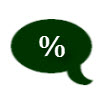!– This material is non-exclusively licensed to Mikel Erdman and may not be copied, reproduced, or sold in any form whatsoever.–>
 The U.S. economy continues to improve.
The U.S. economy continues to improve.
The National Association of Homebuilders released its Improving Markets Index Tuesday. The report attempts to identify U.S. metropolitan areas in which the economy is improving, demonstrating “measurable and sustained growth”.
125 U.S. markets are qualified as “improving” this month, a 22-market jump from the month prior and and all-time high for the index which launched late last year.
Compared to November 2011, this month’s IMI has climbed more than four-fold, rising from last year’s reading of 30. This jump suggests that housing recovery is firmly taking root, helping to generate needed jobs and economic growth across much of the country.
So what qualifies a market as “improving”? The NAHB uses strict criteria.
First, the group gathers data from the three separate, independent sources :
- Employment growth from the Bureau of Labor Statistics
- Housing price appreciation from Freddie Mac
- Single-family housing permits growth from the U.S. Census Bureau.
Next, for each of the above data sets, the National Association of Homebuilders separates for local data in each U.S. major metropolitan area.
And, lastly, armed with data, the NAHB looks for areas in which growth has occurred for all three data points for six consecutive months; and for the most recent “bottom” is at least six months in the past.
In this way, the Improving Market Index doesn’t just measure housing market strength — it measures general economic strength.
Of the 22 markets added to the Improving Market Index in November, the following cities were included : San Diego, California; Gainesville, Florida; Omaha, Nebraska; Louisville, Kentucky; and Charlotte, North Carolina.
Several markets dropped off the list, too, including Hanford, California; Orlando, Florida; Terre Haute, Indiana; and Greenville, North Carolina.
The complete list of 125 metropolitan areas on November’s IMI, plus breakouts of the metropolitan areas newly added and dropped is available online at http://www.nahb.org/imi.</p


















